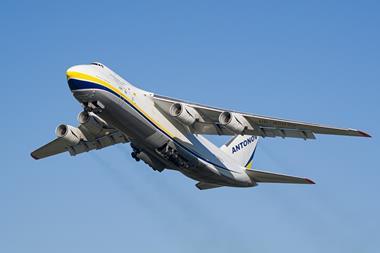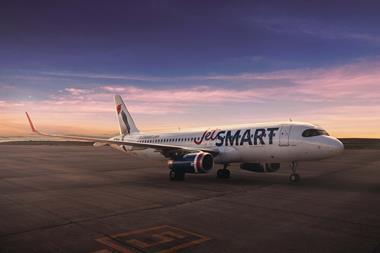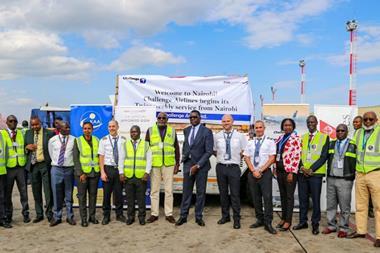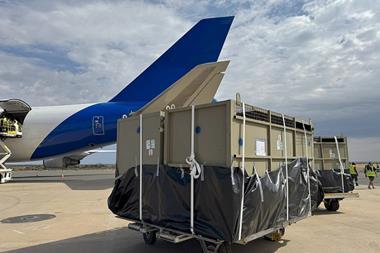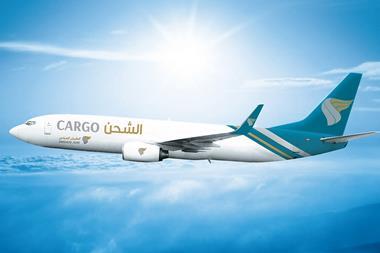When you think of air cargo in Africa, there is a perception that the level of sophistication on offer is somewhat behind that of Europe, North America, the Middle East and Asia.
And while there may be many areas of this vast continent that have poor infrastructure and lag behind on the technology front, there are also pockets that are pushing ahead.
One air cargo carrier that has its eyes on the horizon is Kenya’s Astral Aviation. The Nairobi-hubbed airline, which in 2015 celebrated its fifteenth anniversary, was created and is led by the effervescent Sanjeev Gadhia.
Kenya-born Gadhia also knows how to spot an opportunity and capitalise on it. A banker by profession, he saw a chance to create an airline providing relief services while he was carrying out work for the United Nations and aid agencies.
Astral Aviation was born in 2000 and gradually grew to become one of Africa’s leading cargo airlines.
Today, it operates a fleet of F27, DC9, and Boeing 727-200 freighters within its intra-African network, in addition to a wet-leased B747-400 freighter used on the Nairobi-London Stansted and Liege sector.
The airline’s intra-African network encompasses 50 destinations and it operates a combination of scheduled and ad hoc charters.
Astral also has more than 20 interline partners that feed in cargo from around the globe.
The saying goes that necessity is the mother of all invention and this seems to be a logic that Gadhia subscribes to.
“We have to be innovative in Africa because we have more challenges – such as accessibility and high costs – than the guys in Europe and Asia,” he says.
And one area where Astral is looking to innovate is in the use of drones.
Astral hopes to begin operating cargo drones in 2017, once regulations have been approved by Kenya’s civil aviation authority.
Currently, only South Africa and Rwanda in Africa have drone regulations in place. However, authorities in Kenya have released a draft, which should be approved by the year-end.
Astral has opted to use the FlyOx drone, developed by Spanish company Singular Aircraft.
FlyOx is the largest civil drone on the market, with a payload of two tonnes, and can land at sea, making it ideal for transportation to oil and gas platforms.
Gadhia says some work needs to be carried out to develop the cargo hold as its current configuration limits the amount that can be carried.
Astral’s diversification into cargo drones will complement its existing fixed-wing operations in remote and inaccessible reg-ions in Africa.
Cargo drones have a lower operating cost and the advantage of rapid mobilisation and turnaround, he explains.
Astral plans to operate a number of drones which will be used for humanitarian cargoes along with urban deliveries of e-commerce-related parcels due to the absence of postal addresses in parts of the country.
In addition, Astral plans to offer on-demand charters using cargo drones for various sectors such as oil and gas, mining, power-utilities, infrastructure, agriculture and country mapping.
“Kenya is currently building a new rail line, being built by the Chinese, so we could actually have drones moving across the rail line to see the progress that is being made,” says Gadhia.
“For the power industry, if there is a breakdown because of bad weather or something else, the drone can get there very quickly to survey the situation.”
But Gadhia says it was drones’ potential in relief operations, where Astral has its foundations, that inspired him.
As well as getting to hard to reach places and the ability to land on short runways, he points to the 2015 Ebola outbreak as another area where drones will prove their worth.
He explains that when the outbreak occurred, many airlines placed an embargo on flying to those areas, which raised the question of how to transport vaccines.
Because of the time it takes to get the vaccines to those places, epidemics can spread quickly.
“But if you can get the drones in with the vaccines, you can actually contain it in that area,” Gadhia explains.
Astral Aviation also has plans for its all-cargo operations.
Gadhia says that he hopes to add new B747-8 and B737-400 freighters to the fleet in the near future.
Deals are already negotiated to lease six B737-400s from Tamarind Aviation.
For the two B747s, Astral would need to go to one of the larger lessors, such as Atlas Air.
Gadhia says the B747-8s would be used for international operations while the B737s would be used for intra-Africa flights.
The B747 would be in addition to the aircraft it already leases from Atlas while the B737s would be a new model for the fleet.
The decision to lease the B737s, rather than purchase, is partly down to the launch of the B737-800 next generation conversion programme.
As well as improvements in fuel consumption, the B737-800NG can carry 23.9 tonnes of cargo compared with the B737-300’s 19 tonnes.
“A friendly lessor is one that has good plans for the B737s, that in three or four years will be happy to take back the -400s and instead give us the -800s,” he says.
Gadhia adds that Astral’s wide range of freighter aircraft sets it apart from many of the other African airlines.
For instance, Kenya Airways and Ethiopian Airlines offer the larger freighters, but what about shippers and forwarders that want to move only 10 tons of cargo, he questions.
Astral’s F27s can carry five tons, its DC9s have capacity for 15 tons and the B727-200s can take 24 tons.
Gadhia has also spoken in the past of other benefits of its DC9 freighters, which have overwing engines, making them ideal for runways surfaced with gravel that could be ingested by underwing engines.
In conjunction with these plans, Gadhia says the airline hopes to add two new hubs to its existing centre at Nairobi; one will be in Johannesburg and the other in either Lagos or Accra.
He says that, to continue to grow, the airline needs more than one hub in Africa. “The continent is too big and the distances are too big,” he explains.
These hubs could well be established through a partnership.
“If we don’t do it ourselves, we don’t mind partnering up with someone else,” he explains. “There have been a lot of regulations relating to ownership of Air Operator Certificates (AOCs), so if I have to set up my own AOC in South Africa there is a rule that the majority has to be owned by the local partner.
“So if I have a partner with three aircraft, I will tell him that I would like to take a commitment on one of those aircraft. We will take a commitment but it would be their AOC, their hub, so you don’t have to reinvent the wheel.”
But at the moment the plans for hubs and new freighters are on hold as the African air cargo market is suffering a bit of a dip.
However, Gadhia is certain that this is only a short-term development and it won’t be long before the aircraft are part of Astral’s fleet.
Gadhia says that, being a private cargo airline means Astral can be more flexible with aircraft deals than legacy carriers and respond to opportunities as and when they come up.
On the other hand, independent airlines do not have the financial power of some of the up-and-coming airlines that can order an aircraft and worry where to deploy it at a later date.
While there is a bit of a lull in Africa’s air cargo growth at the moment, overall there are expectations for growth of more than 6% per year fuelled by a growing population and an emerging middle class.
And with a fragmented and large market place, airlines that can be flexible and forward looking will surely be amongst the winners.





